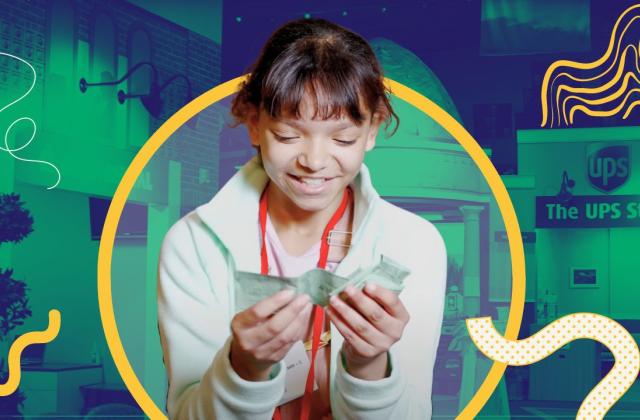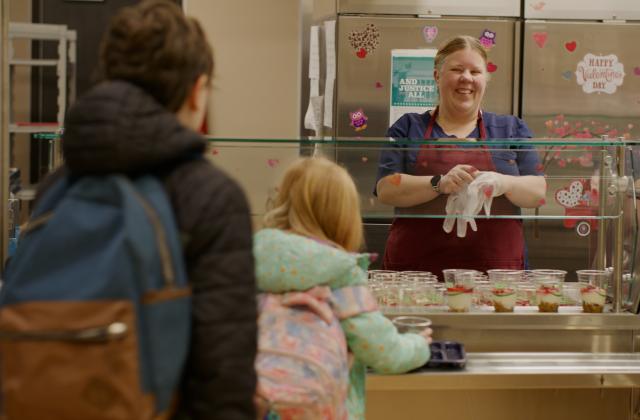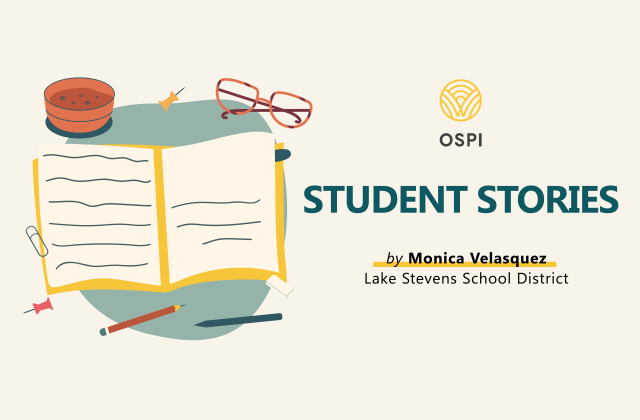Media Contact
Katy Payne she/her
360-764-0201
Editor’s Note: OSPI aims to elevate the authentic experiences of the students in Washington’s K–12 public schools. This story was written by a Washington state high school student participating in OSPI’s Student Stories Program. The author’s opinions, beliefs, and viewpoints do not necessarily reflect those of OSPI, and publication of this story does not constitute OSPI’s approval or endorsement of its contents. With questions, please contact OSPI’s Communications team at commteam@k12.wa.us.
High school is all about discovering our potential and building on it along with preparing ourselves academically and socially for the future. Whether you are interested in literature, science, or global issues, clubs are fantastic resources to experience holistic growth.
High school clubs are for everyone, and our Legislature is working to make them more inclusive. In 2020, the Legislature passed the House Bill 1660 to lower the barriers for students identified as low-income and increase their participation in high school clubs and athletic activities.
When I moved to Bellevue from Korea, the prospect of high school clubs excited me, from the cherished memories of them in middle school. I remember eagerly going through school websites for all the different club details even before getting enrollment approval for my school.
However, when I started school, it was different than what I had expected. Compared to my cozy middle school in Korea, where everyone was quite close to one another and stayed in the same class for a year, high school was much more expansive and different. Everything was unfamiliar; I decided the best way to understand was to go and check out new systems firsthand.
Joining the Clubs
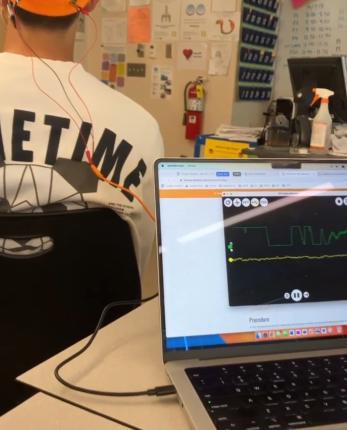
I reached out to clubs with the contact details of communication officers from posters and advisor emails. Thanks to all their support, within a month, I was already trying various clubs like UNICEF, Neuroscience Club, Model United Nations, Fellowship of Christian Athletes, and more. With these clubs came new experiences, conducting amateur labs, speaking at SeattleMUN in Seattle University, and simply spending time with people who have shared interests.
Clubs This Year
This year, my friend and I created Ping-Pong Club to help students relieve stress through social and physical activity. Our basic goal is to foster a warm, welcoming environment for all, especially newcomers to school like me, to feel a sense of involvement. Also, we hope to develop our ping-pong skills together along with social skills like communication or collaboration skills. We have a tournament with other schools coming up in April and throughout the year, we are also planning to host events regarding ping-pong and our club.
At the club fair this year, I also signed up for various clubs:
- In Operation Smile Club, we started to hold workshops about health equity for elementary and middle schoolers in our community. It was rewarding to see them gaining new perspectives that not every country has the same resources and situations.
- In UNICEF Club, we learn about world issues and ways to raise awareness. Last year, we also organized a fundraiser for humanitarian aid in Ethiopia. As a communication officer this year, I am now trying to make communication more approachable. Through this club, I had a chance to think about our humanity regarding children in crises across the world in front of shared humanity.
- In the Neuroscience Club, we had the Human Spikerbox Lab. It was interesting to visualize how a neuron communicates with other cells through electrical impulses with the stimulation of nerve cells. It aroused my curiosity in how the human brain works, leading to increased interest in my AP Psychology class, learning about brain development this year.
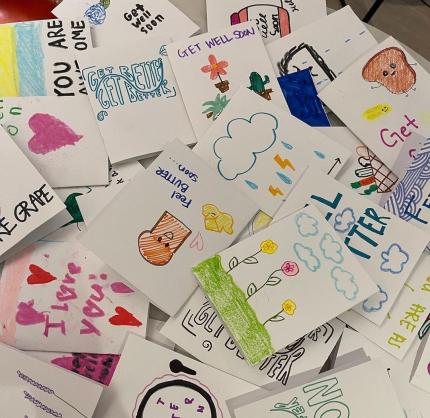
There were so many clubs that I was almost hopping around at first to figure out which clubs I would dedicate my high school years and beyond. While this may not seem like the best way to manage time with AP classes, volunteering, and jobs, I believe it is truly worthwhile at least for a few months. Trying clubs we weren’t interested in before or had no opportunity to try in our daily lives can be a transformative experience, discovering ourselves with an eagerness. From this experience, I learned that sometimes, it is okay to take “longcuts” instead of “shortcuts.” We should give ourselves a chance to leave behind the shortcut in front of us and take the curvy longcuts with many experiences and opportunities hidden by immersing ourselves in each club rather than hearing from other people before choosing to join.
What Clubs Mean to Me
Clubs have been influential and unique experiences for me. With shared interests, clubs have provided a similarity base between me and the rest of us within the club. In addition, I realized the value of meeting different people and learning their perspectives to broaden my understanding of the world and people. Also, clubs provide us with the opportunity to practice leadership skills and to become the leaders of our learning experiences. Clubs helped me discover my interests and initiate my learning. Having board positions has also allowed me to be in the new position of both initiating and supporting all the club members behind the scenes. Even as an active member, we could still practice leadership skills encompassing transformational, servant, and democratic leadership. Lastly, I could delve into topics that I was curious or passionate about and discuss them with others.
Experiences of high school clubs are like one note in a music piece, enriching the full harmony of our journey in the end. While enjoying the individual notes, the notes may not sometimes sound significant to you, but know that each note matters and at some point, they will add up to something meaningful.
About the Author
Sein Kim (she/her) was born in South Korea and is in 10th grade in the Bellevue School District. She is interested in writing, psychology, chemistry, neuroscience, and more. She loves to work with children and motivate them through volunteering at various organizations. She is also involved in her school’s UNICEF Club to advocate for humanitarian aid for children around the world. Outside of school, Sein can be found playing the violin, writing, making Google Slides presentations, and spending time with her family. She hopes to inspire others through her writing.







